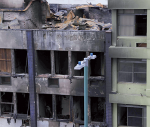You are here
Examinations are going to have to change
Aug 27,2019 - Last updated at Aug 27,2019
Consider, if you would, your most productive two hours today, or this week. How much did you get done? At work, was it during a meeting? I imagine perhaps not, but you never know. I would think the period when you achieved the most involved a variety of tasks and ways of working. You spoke to colleagues, both in person and via social media or on the telephone. You moved around, made some notes, wrote, scribbled, hummed. You went on-line to read the news or to check a few facts. You walked into the room next door. You net-worked, you communicated, you thought and you did something, took a decision or reached a conclusion or made something happen.
But you were in the wrong. Talking to others is cheating. You must show what you can achieve alone. Checking your facts before you write that e-mail is not fair; you should only rely on your memory. To show what you can achieve, you should work alone, isolated, off-line, silently, and if you need to take a comfort break, you must ask permission. And ideally you should do so in a big empty hall, on an awful chair, at a small desk, with only pen and paper, surrounded by your peers, but 1.5 metres away from them. In silent rows.
Globally, the way we assess the capacity of our young people has got to change. Paper and pen exams are thought to be easy to run, straightforward and are accepted by pupils, parents and educationalists alike, from the US to Asia and the Middle East, as the “way it has always been done” and the gold standard. Slowly now, where financial and technological resources allow, we are moving into allowing laptop computers given that using them reflects the “normal way of working” of many pupils. And we pride ourselves that we are being terribly modern and moving with the times. But moving from paper and pen to a keyboard is not transformational; it is just using a slightly different technology. Oh, and turn off the spell-check before you type. That is cheating too. You have to remember how many Ms and Cs there are in “accommodation”.
Worldwide, we are guilty sometimes, in educational settings, of ways of working and thinking that seem to be beyond questioning or challenging. Change, if it comes, comes slowly and often by trial and error, which is shocking when you think who we are trying it out on and who is carrying the burden of the errors. Ernst and Young and PWC decided a while ago that they were not very interested in insisting on the need for a graduate degree, and that they could do it better themselves by taking in young people at the age of 18 and training them in-house. And they pay them while they train. The universities looked the other way, hummed and pretended it was not happening.
Perhaps we should even start to address the issue that we only assess that which is easy to assess. There is a fruitless debate about whether schools should focus on assessing skills or knowledge, as if life were that simple. A much more interesting question is how we might assess the content of a pupil’s character; their ability to co-operate, or create; how inquisitive they are. Now, I am as big a fan of the effective use of Key Performance Indicators as anyone involved in running an organisation that produces data, but numbers are only part of the picture. We have to do better.
The International Baccalaureate uses exams, but also allows pupils to be assessed on their research skills and ability to write longer analytical pieces, focuses on concepts more than content, assesses pupils’ ability to communicate verbally and requires of them that they develop their bodies and sense of social responsibility too. They must also examine the philosophy of knowledge. Let us hope that this debate will enable more and wider ranges of talent and intelligences to be acknowledged and recognised. And let us not be satisfied that exams are the last and only word on assessing human potential. I fear that exams sometimes only identify people who are good at exams; and exams are not life.
The writer is principal of Amman Baccalaureate School. He contributed this article to The Jordan Times












